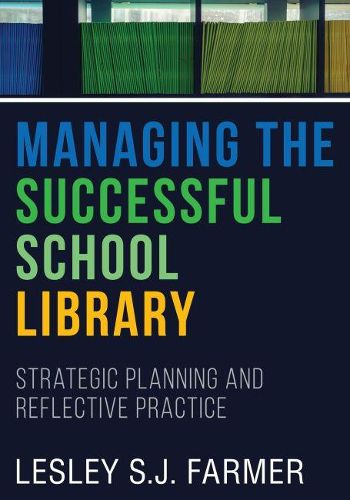Readings Newsletter
Become a Readings Member to make your shopping experience even easier.
Sign in or sign up for free!
You’re not far away from qualifying for FREE standard shipping within Australia
You’ve qualified for FREE standard shipping within Australia
The cart is loading…






This title is printed to order. This book may have been self-published. If so, we cannot guarantee the quality of the content. In the main most books will have gone through the editing process however some may not. We therefore suggest that you be aware of this before ordering this book. If in doubt check either the author or publisher’s details as we are unable to accept any returns unless they are faulty. Please contact us if you have any questions.
To ensure their libraries survive and thrive, school library managers need to be both responsive and proactive. Looking past the day-to-day operations of a school library, Farmer’s book serves as a reality check: school libraries must align with school mission statements and policies, while simultaneously negotiating for proper budgets and resources alongside other departments. It’s a daunting prospect, but Farmer demonstrates how it can be done with the proper attention and systematic planning. Taking a deeper, more professional look at management that applies theories and principles to real-world situations, this book
introduces the concept of school library programs and provides an overview of school library program management; examines professional and legislated standards for school libraries, and discusses the part a manager plays in meeting them; links management with leadership, differentiating the two, and showing how the school librarian can carry out both roles; helps readers assess their own skills, knowledge, and dispositions in order to set short-term and long-term goals; explains how to manage resources and learning environments to meet the needs of teachers, administrators, parents, and other stakeholders; offers guidance for developing and working with budgets, obtaining additional funding, and using collaboration to support the school library program; provides concrete advice on hiring, training, supervising, assessment, and recognizing library workers and other library team members; and includes tools for communicating effectively and getting the message across
. More than just a compendium of management theories, this book provides much food for thought that will help readers gain important insights into their own roles as school library managers and leaders.
$9.00 standard shipping within Australia
FREE standard shipping within Australia for orders over $100.00
Express & International shipping calculated at checkout
This title is printed to order. This book may have been self-published. If so, we cannot guarantee the quality of the content. In the main most books will have gone through the editing process however some may not. We therefore suggest that you be aware of this before ordering this book. If in doubt check either the author or publisher’s details as we are unable to accept any returns unless they are faulty. Please contact us if you have any questions.
To ensure their libraries survive and thrive, school library managers need to be both responsive and proactive. Looking past the day-to-day operations of a school library, Farmer’s book serves as a reality check: school libraries must align with school mission statements and policies, while simultaneously negotiating for proper budgets and resources alongside other departments. It’s a daunting prospect, but Farmer demonstrates how it can be done with the proper attention and systematic planning. Taking a deeper, more professional look at management that applies theories and principles to real-world situations, this book
introduces the concept of school library programs and provides an overview of school library program management; examines professional and legislated standards for school libraries, and discusses the part a manager plays in meeting them; links management with leadership, differentiating the two, and showing how the school librarian can carry out both roles; helps readers assess their own skills, knowledge, and dispositions in order to set short-term and long-term goals; explains how to manage resources and learning environments to meet the needs of teachers, administrators, parents, and other stakeholders; offers guidance for developing and working with budgets, obtaining additional funding, and using collaboration to support the school library program; provides concrete advice on hiring, training, supervising, assessment, and recognizing library workers and other library team members; and includes tools for communicating effectively and getting the message across
. More than just a compendium of management theories, this book provides much food for thought that will help readers gain important insights into their own roles as school library managers and leaders.